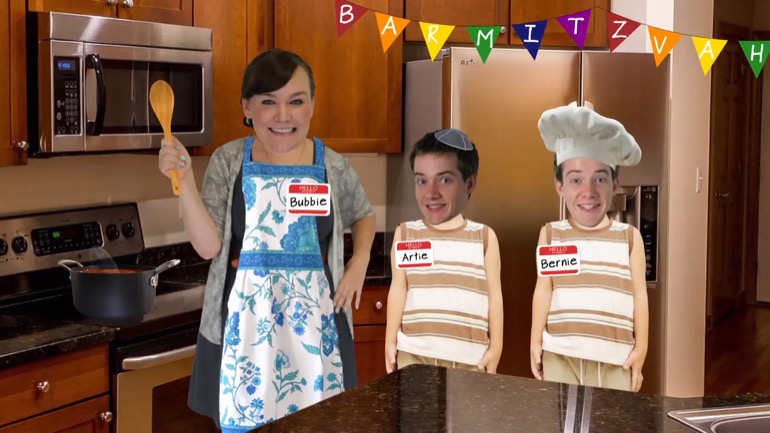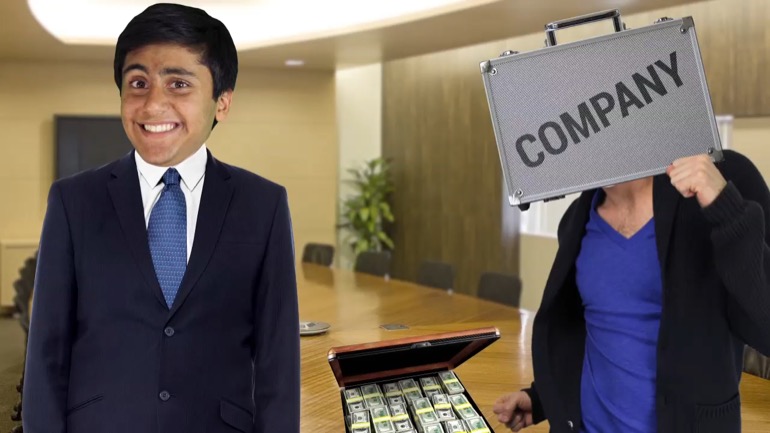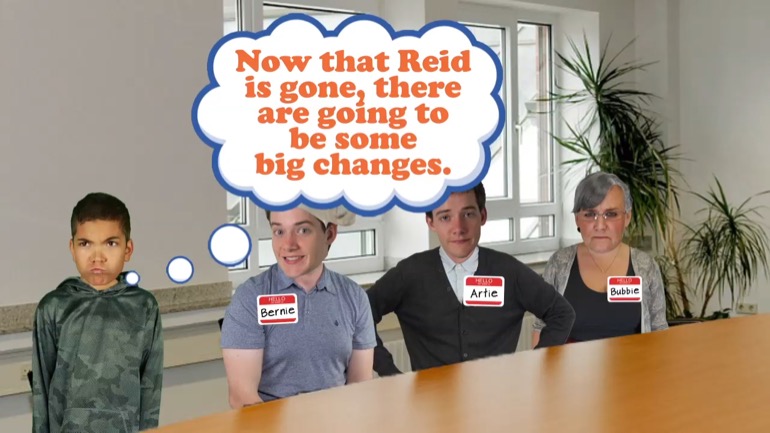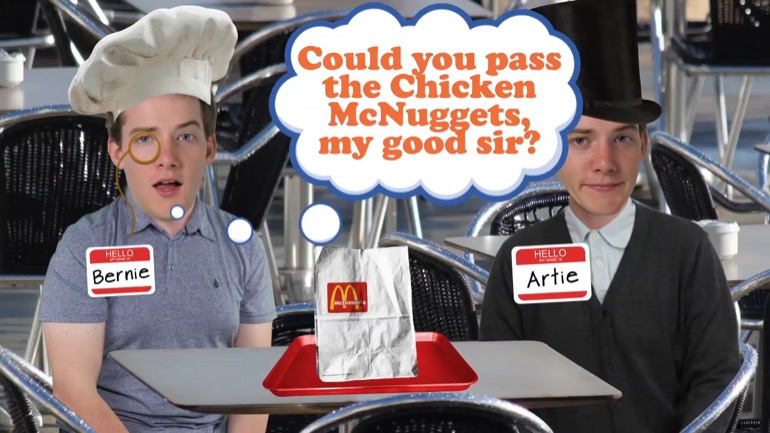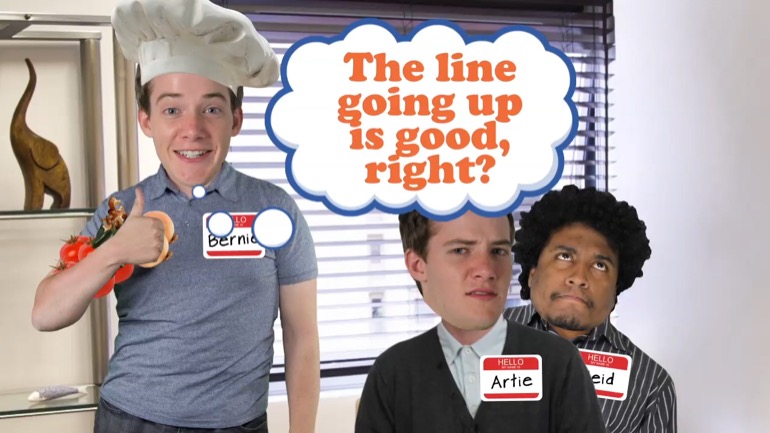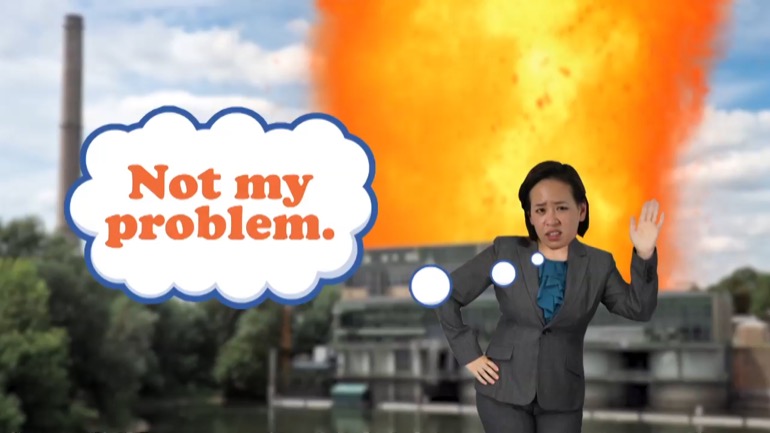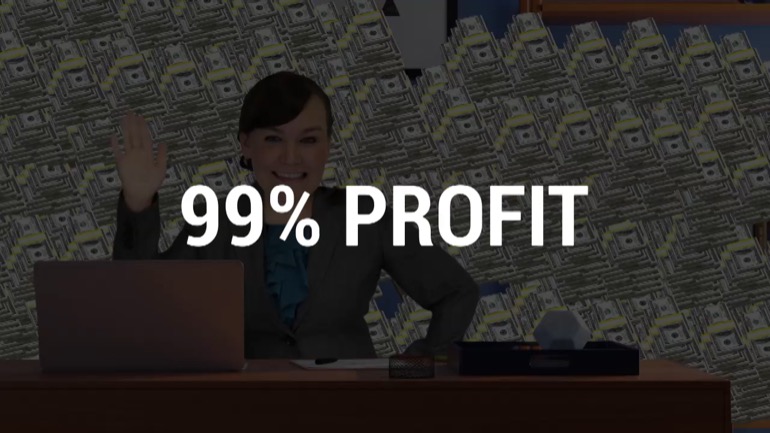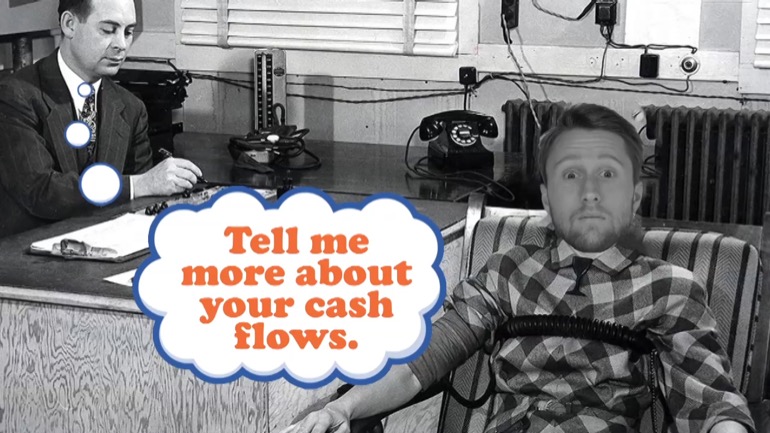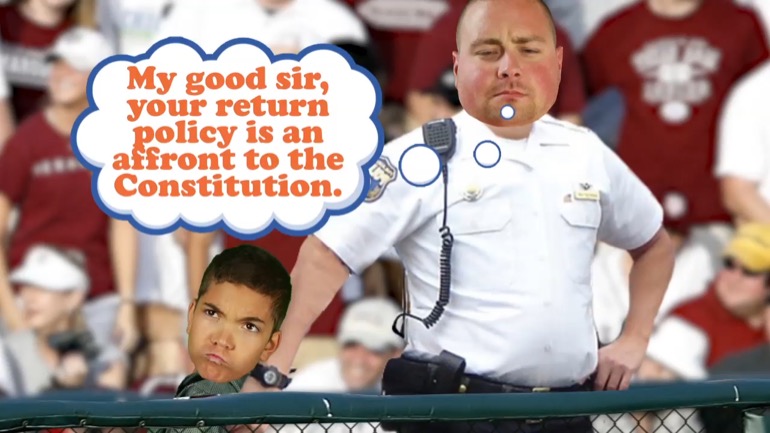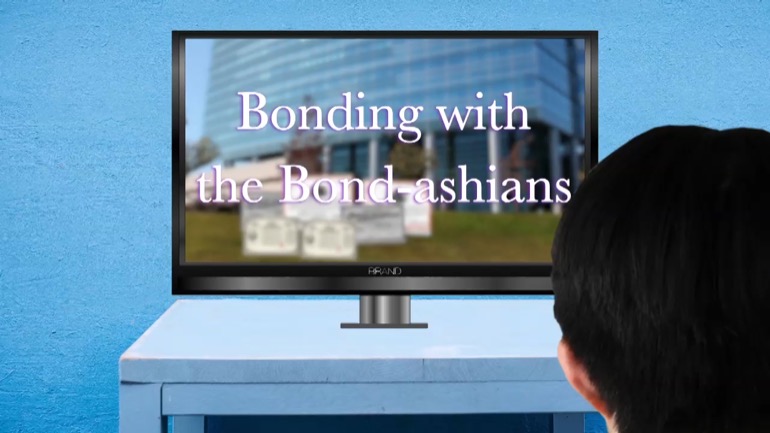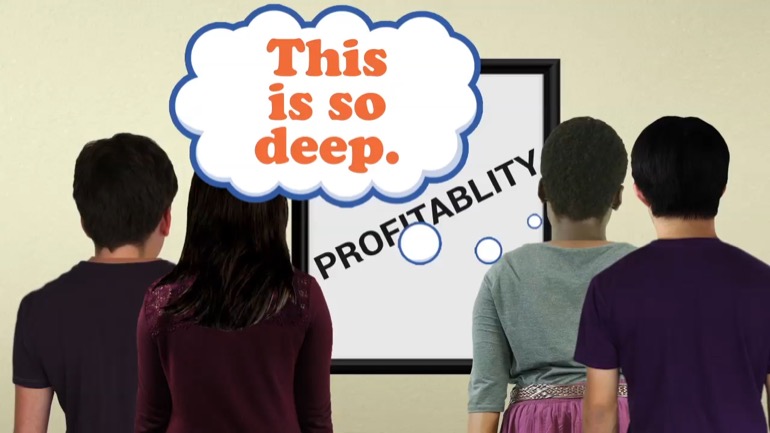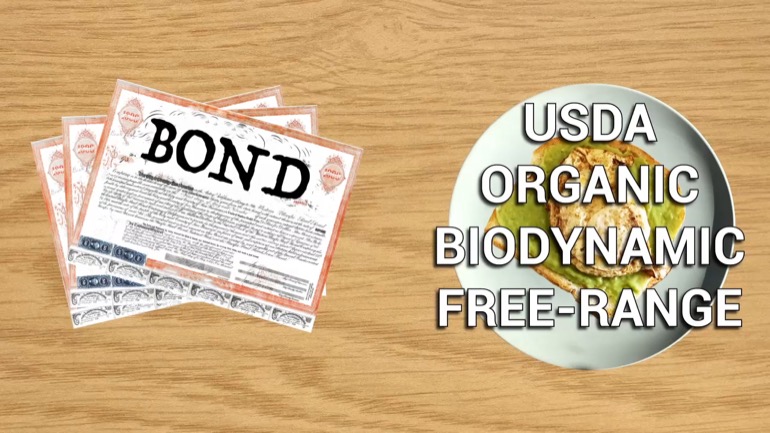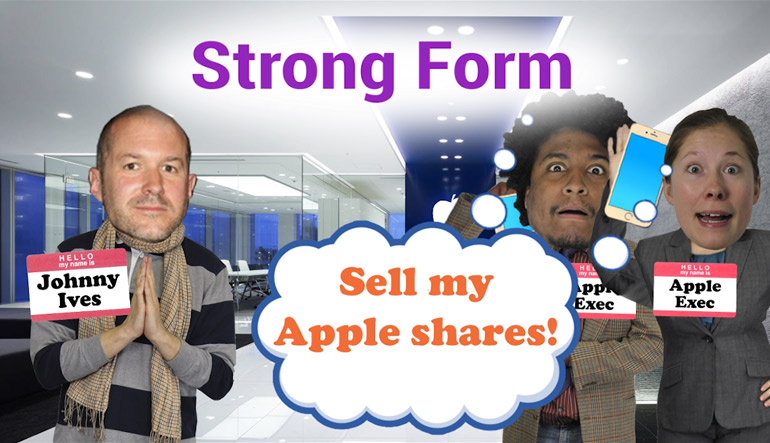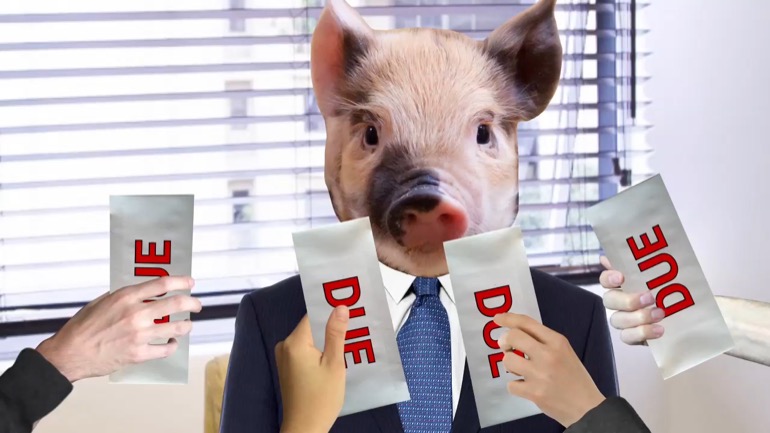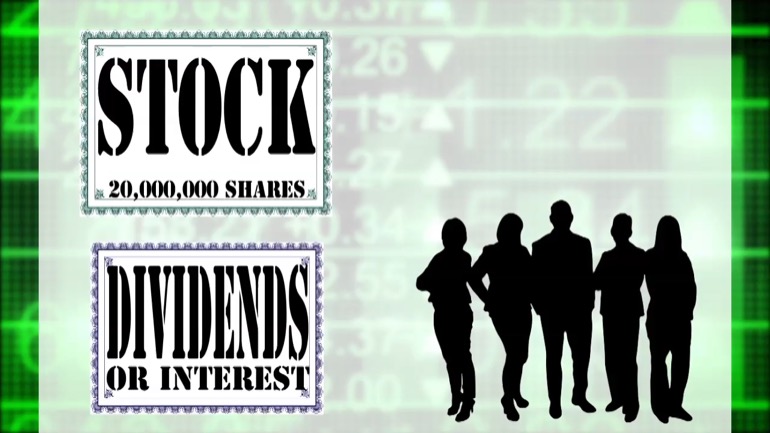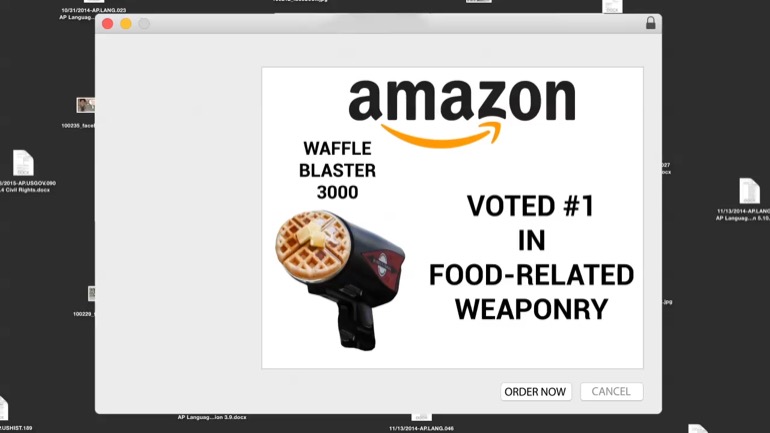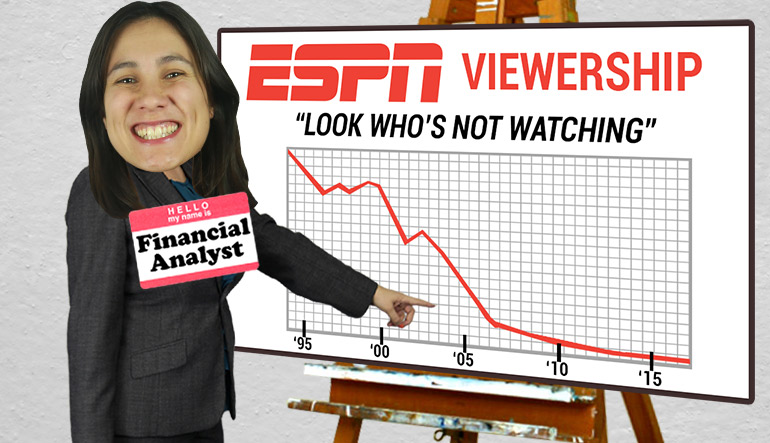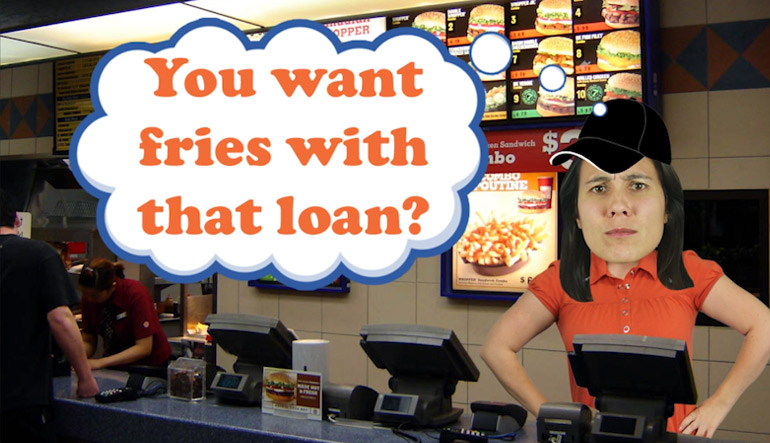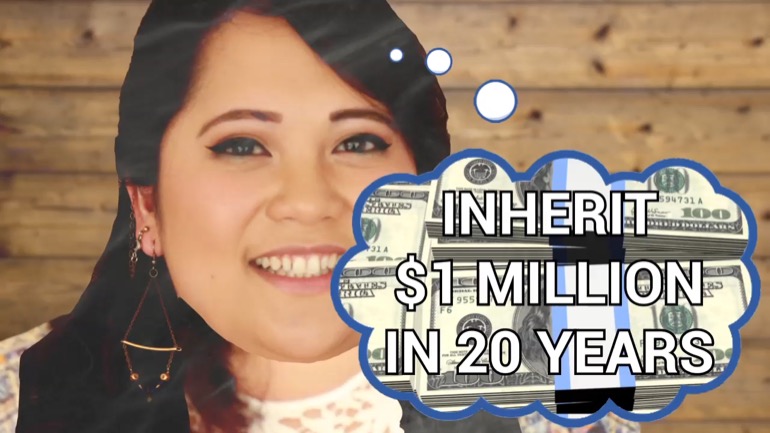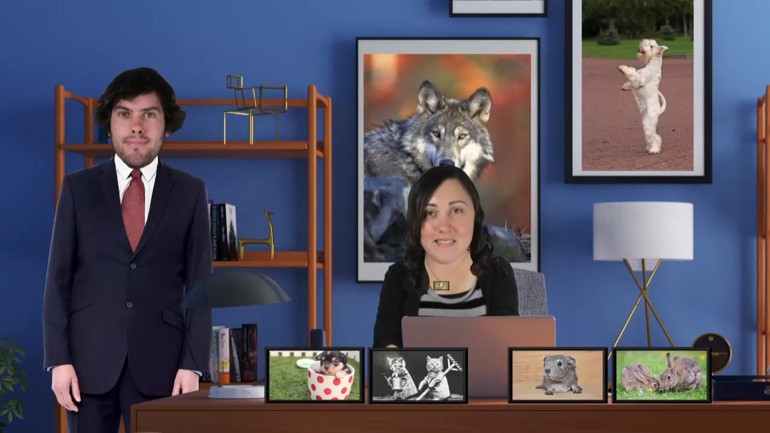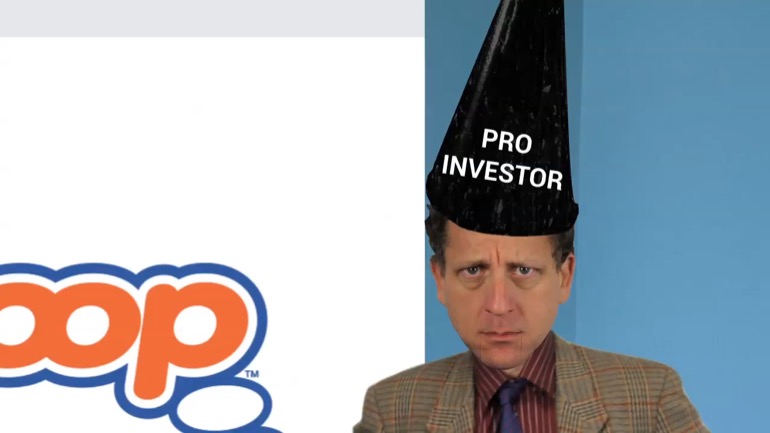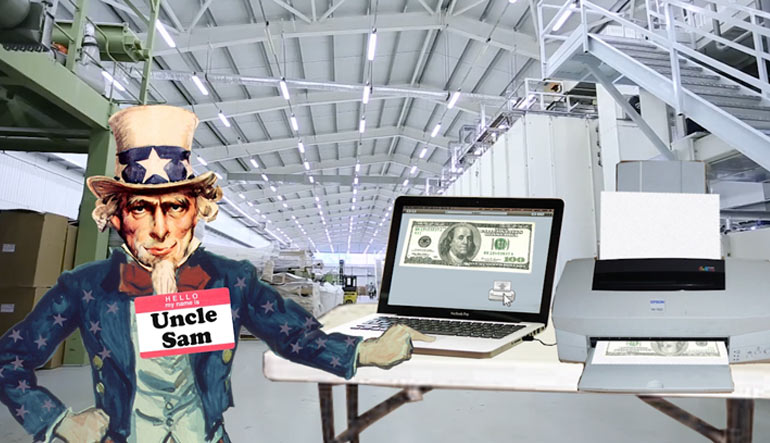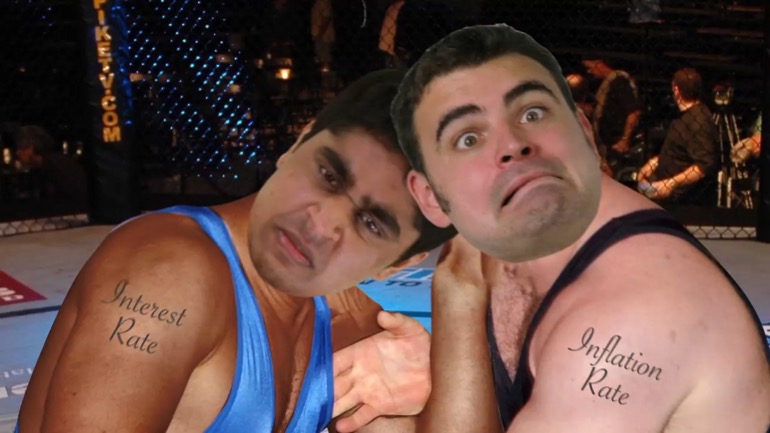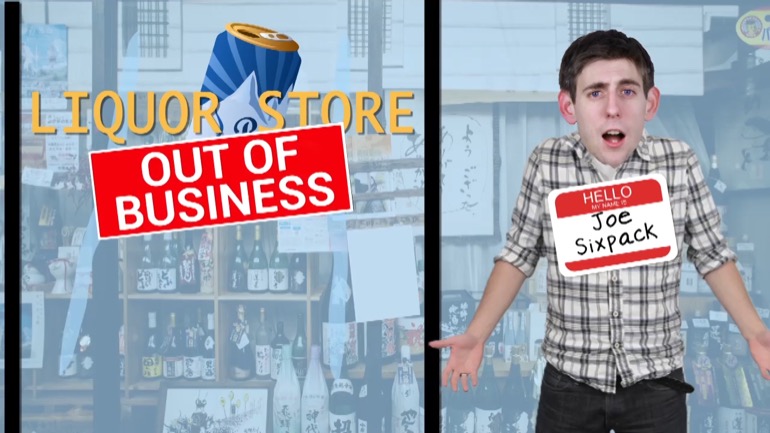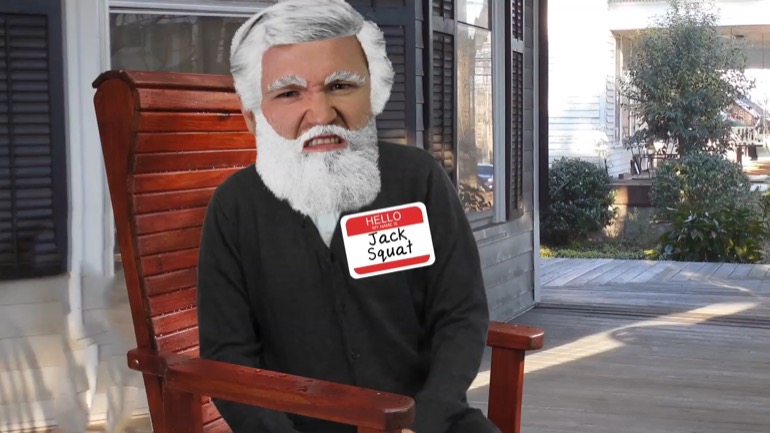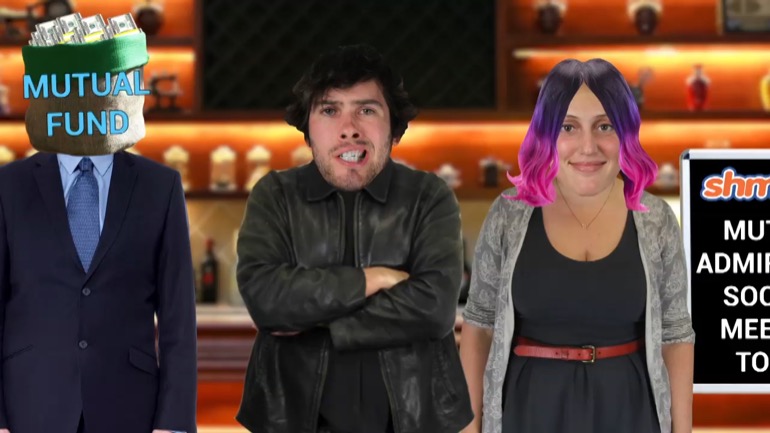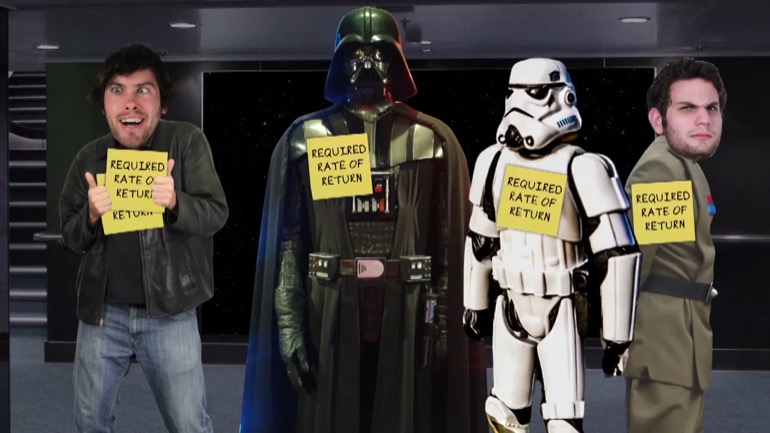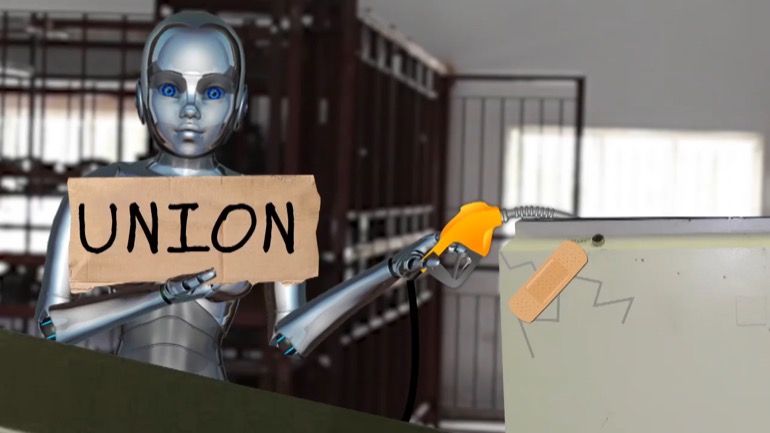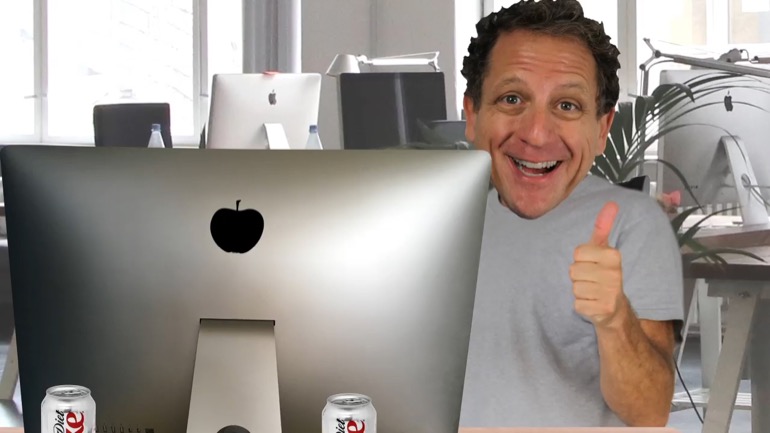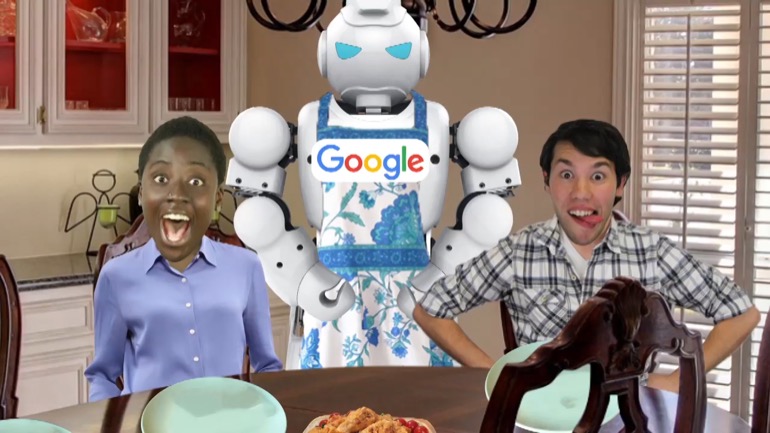ShmoopTube
Where Monty Python meets your 10th grade teacher.
Search Thousands of Shmoop Videos
Principles of Finance Videos 156 videos
Okay, so you want to be a company financial manager. It's basically up to you to make money for the shareholders. It would also be swell if you mad...
How is a company... born? Can it be performed via C-section? Is there a midwife present? Do its parents get in a fight over what to name it? In thi...
What is an income statement, and why do we need it in our lives? Well, let's take a look at an income statement for Year 1 of the Sauce Company, an...
Principles of Finance: Unit 2, Practical Examples of Inflation: Part II 4 Views
Share It!
Description:
In this video, we're going to hit you with some more practical examples of inflation. Everyone get your balloons ready.
Transcript
- 00:00
principles of finance a la shmoop practical examples of inflation part 2
- 00:07
all right well remember our punch-drunk friend inflation well he's back [Two people fighting in the UFC]
- 00:13
yeah we're investors in the stock market in one form that is we only own one [People wearing suits appear]
- 00:17
thing its ticker SPY which is a huge ETF which basically tracks the
- 00:23
performance of the S&P 500 it pays a three percent dividend which is a
Full Transcript
- 00:27
mash-up amalgamation of all of the dividends of the stocks contained in the [List of all the stocks in the S&P 500]
- 00:32
SP 500 some pay no dividend others pay huge dividends like six seven eight [High dividend paying stocks are highlighted]
- 00:37
percent you know that historically the market goes up in eight or nine percent
- 00:41
a year over long periods of time and these investments are long-term in [S&P 500 chart showing price going up over time]
- 00:46
horizon so you expect 8% minus the 3 percent dividend to produce about 5% a
- 00:53
year growth of the actual value of ticker SPY well the market trades at
- 00:58
about 20 times earnings a pretty high multiple on its own by historical
- 01:02
standards but at 20 times investors are getting a quote 5 percent yield unquote [Long term return points written on a whiteboard]
- 01:07
on earnings that is if a company will earn $1 a share investors are paying $20
- 01:12
a share for it hmm interesting that's a 5% earnings yield plus the 3% [Company holds up 1 dollar and an investor holds up 20 dollars]
- 01:19
yield from dividends they add up to 8% magic well all the sudden some old white
- 01:24
guy in a suit in front of the mic at the White House [Guy with a beard stood at a podium]
- 01:27
stands there and announces that frozen concentrated orange juice is now $4 a
- 01:33
case instead of 3 and that milk prices are skyrocketing and that inflation is
- 01:38
suddenly a big fat deal and that the new president doesn't want to see old ladies [Woman with all her belongings next to her car]
- 01:44
living in their Lexuses because they bought bonds in their retirement funds
- 01:48
and had never taken this course immediately the bond market reacts it [Newspaper article about inflation]
- 01:52
predicts that inflation will grow fast from its current 2 to 3% levels
- 01:57
- well pundits talking about 5 to 6 percent meaning inflation is about to
- 02:02
hit in a really big way well guess what long-term bond prices collapse why long [The newspaper article is punched away by inflation]
- 02:07
term because inflation is something that goes on and on and on and if you're [Gravestone for long term bond prices]
- 02:11
married to a long term bond with low interest rates
- 02:14
predicted that rates will go up a lot in the future and the value of your current [Guy speaking next to a presentation about bonds collapsing]
- 02:18
low yielding bonds is worth a lot less a given bond used to have to yield 6% to
- 02:23
clear the market or get bought given its duration and risk well those
- 02:27
bonds were trading at a hundred cents on the dollar
- 02:29
got it yielding 6% but now that same bond must pay 10% to clear the market or [The 6% on the bond certificate is crossed out]
- 02:35
get bought or that's its market price the piece of paper bond investors are [10% is written on the bond]
- 02:39
holding however only pays sixty dollars a year for the thousand dollars invested [Woman holding up 60 dollars looks sad]
- 02:43
so that bonds market price now has to drop from a hundred cents on the dollar
- 02:48
to sixty cents got it at six hundred bucks for that
- 02:51
piece of paper which pays $60 a year the bonds now yields the 10 percent it has
- 02:57
to yield to reflect these new market conditions so what is the stock market [The changes in bond price are written onto the whiteboard]
- 03:02
do well we're clearly in a booming economy for inflation to be hitting us [Guy in a suit is punched in the face by inflation]
- 03:08
so hard but it's clear that the federal government wants to cool things off and [Government building on fire]
- 03:12
they have some real tools in their pocketbook to do so they also have some [Firefighter arrives with a hose]
- 03:16
financial tools to cool off the economy so the market adjusts what are those
- 03:21
tools well remember the Fed that can raise rates but here we go
- 03:24
if bond rates are going up and investors can get guaranteed returns of 5% on very
- 03:30
safe things like backed by the US government and corporate bonds return 8% [Whiteboard listing other securities]
- 03:35
like semi risky corporations and high-yield ie riskier bonds from risky
- 03:40
corporations return 10 11 12 % well why would investors cling to their stocks [Woman holding onto her stocks]
- 03:46
they won't they'll sell them down to a given level where they yield plus the
- 03:51
growth prospects corrects to reflect these new market conditions like if you [Woman trades some of her stock for cash]
- 03:56
get guaranteed rates from bonds of a certain level of appreciation you've got
- 04:00
to get a whole lot more that from equities to warrant the risk you're
- 04:03
taking right so think about it a different way the price to earnings
- 04:06
ratio of the market will fall and the dividend yield of that S&P 500 will go [Arrows showing P&E ratio falling and yields increasing]
- 04:12
up because the dividends don't change nearly as fast as the market prices do
- 04:16
right corporations aren't suddenly cutting their dividends because there's [Dividends being cut with a corporation saw]
- 04:19
inflation so numerically think about it like instead of 20 times earnings the
- 04:24
market might fall to being only 16 times earnings and its yield
- 04:28
all else being equal well dividend yield go from about three percent to about
- 04:32
four percent is twenty five percent ish correction and it's about where
- 04:35
they go so it's 16 times earnings investors are getting an earnings yield
- 04:39
of 1/16 or 6.25% investors are now getting up four percent cash dividend [Yield calculations are shown on a whiteboard]
- 04:45
plus the earnings yield to total ten point two five percent compared with the
- 04:49
eight percent before that inflation crisis yep the market just got a little
- 04:54
cheaper thank you fed well when interest rates go really high think about what [Joe Sixpack clinging to his beer]
- 04:58
happens to Joe Sixpack if quotes safe unquote rates backed by
- 05:02
the US government are four percent corporate bonds pay six percent and high
- 05:06
yield pays and twelve percent well then Joe pay something like
- 05:09
eighteen percent interest on his credit cards and remember that Joe carries a [Joe holding his credit card that says debtor's balance]
- 05:14
debtor's balance all the time on his credit cards because he likes beer now [Joe in the liquor store]
- 05:20
if safe bonds go up a lot like eight percent ten percent well then everything
- 05:24
else moves in lockstep as well and Joe wakes up with thirty percent interest on
- 05:28
his credit cards and while this change is probably good for his waistline it [Liquor store goes out of business]
- 05:33
destroys the economy in a way that is such high rent prices of money make a [Joe looks upset]
- 05:38
lot of people who had adjustable rate mortgages go up or have to evacuate
- 05:43
their homes because well they never imagined that interest rates would go so [Couple looks upset as their house starts to flood]
- 05:48
high and you're like well then why did you buy an adjustable rate mortgage
- 05:51
why'd you take all that risk yeah they really didn't know consumers plead [The couple are washed away]
- 05:55
ignorance all the time at six percent they could afford their mortgage but at
- 05:59
ten percent no not so much well this situation creates an even
- 06:02
wider spread between the haves and the have-nots the wealthy have investments [Gate with a sign that says 'poor wet people keep out]
- 06:07
like stocks and bonds and homes and custom fish tanks which they can use as
- 06:11
collateral to get low-interest loans if they want them or they can just spend [Guy cashing in his fish tank at a pawn shop]
- 06:15
less which they would likely do and many of the wealthy don't have mortgages they [Guy holding a big pile of money]
- 06:19
just pay cash for everything so how did all this start where is the foundation
- 06:22
of interest rates well in the modern economy everything starts at whatever is
- 06:26
at the time perceived as quote most safe and today that most safe thing is the US
- 06:33
government's ability to tax its upper half of taxpayers because remember the [Taxed stamp on the upper bracket]
- 06:38
bottom half the country really didn't pay anything
- 06:40
taxes the bet that borrowers are making is that the upper half will continue to [Someone betting chips in a card game]
- 06:44
work hard and pay their taxes and not Greece like you know where they all [Someone putting bundles of cash on the table]
- 06:48
leave the country or just become very corrupt and nobody pays any taxes in the [Taxes vanish in Greece]
- 06:52
country goes bankrupt well everything else is considered riskier than that
- 06:56
base case US government backed bonds situation so a risk premium is stacked [Least risky stamp on government bonds]
- 07:02
on top of it whenever other debt or investment opportunities are considered
- 07:06
for a well positioned large corporation rates are a bit higher but only maybe by [Stack of cash outside 'Large Co.']
- 07:12
a percent or two then as you get into the less well-positioned riskier players [Risk Co. floating on the sea]
- 07:17
obviously the risk premium gets higher and you build a stack of premiums added [Stacks of money labelled premiums]
- 07:22
on to the base rate foundation of the most safe fed and let's hope Uncle Sam
- 07:27
continues to be most safe [Uncle Sam wearing boxing gloves]
Related Videos
GED Social Studies 1.1 Civics and Government
What is bankruptcy? Deadbeats who can't pay their bills declare bankruptcy. Either they borrowed too much money, or the business fell apart. They t...
What's a dividend? At will, the board of directors can pay a dividend on common stock. Usually, that payout is some percentage less than 100 of ear...
How are risk and reward related? Take more risk, expect more reward. A lottery ticket might be worth a billion dollars, but if the odds are one in...


